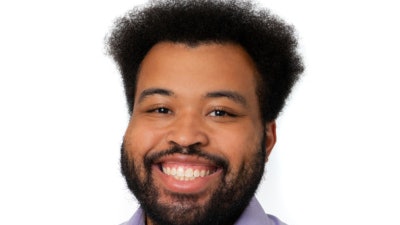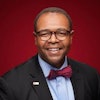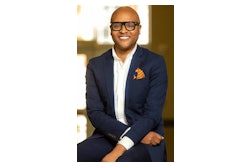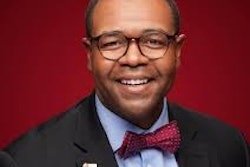“It’s a reminder that you are a representation for many others and many other players that look the same way I do. Your color shouldn’t matter. Your evidence of your work should.”
After leading the University of Notre Dame’s football team to a 23-10 victory over the University of Georgia in the Sugar Bowl, head coach Marcus Freeman Christian Collins
Christian Collins
It's fitting that not only will this year’s historic national championship take place on Dr. Martin Luther King, Jr. Day, but also that the national theme for this year’s Black History Month is “African Americans and Labor.” Work, mainly the unpaid work of chattel slavery, is the entire genesis of the existence not only of Black people in the United States but also the nation itself. The evidence of the work of Black people has never truly mattered in this country, and college football is one of the most visible industries where color does unfortunately matter.
Coach Freeman himself demonstrates the slow progress of valuing the work of Black figures in college football through his mirrored history with Rudy Hubbard, the first Black head coach to lead a team to a Division 1-AA (now FCS) national championship. Freeman and Hubbard were both born in Ohio, Freeman being born at Fairborn’s Wright-Patterson Air Force Base and Hubbard in the Youngstown suburb of, fittingly, Hubbard. Both attended and graduated from The Ohio State University as football players, Freeman as a linebacker and Hubbard as a running back. Columbus was also where both men began their coaching careers, Freeman as a graduate assistant under Jim Tressel in 2010 and Hubbard as an assistant, and the first-ever Black member of Ohio State’s coaching staff, under Woody Hayes in 1968.
When Hubbard left Ohio State in 1974 to take the head coaching job at Florida A&M University, HBCUs were the only programs willing to hire Black head coaches regardless of the evidence of their capabilities. It would be another five years before Willie Jeffries broke the Division 1-A (now FBS) color barrier at Wichita State, and seven years before Dennis Green became the first Black head coach at a Power 4 program upon accepting the Northwestern job.
As Freeman and Franklin take the stage in the Orange Bowl, the college football landscape hasn’t made much progress. In 2012 there were 45 Black head coaches across 248 Division 1 football teams, and for 2024 there were 42 Black head coaches for 258 teams. Only 16 out of 134 FBS schools currently have a Black head coach, although 7 of those coaches are at Power 4 programs. The SEC is the only Power 4 conference without a Black head coach and hasn’t had one since Cadillac Williams spent 4 games as an interim for Auburn to close the 2022 season.


















